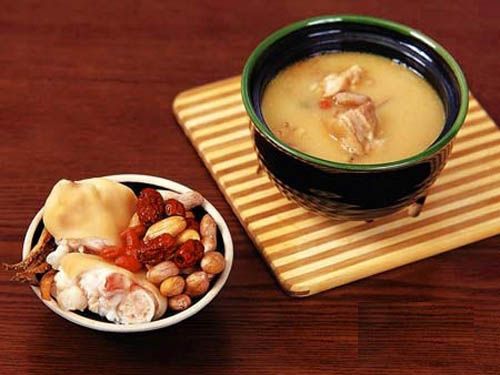The confinement period after the childbirth is the period when the new mother regains her physical condition. At this time, if there are symptoms of post-partum frailty, it is necessary to relieve food in time. Today, Xiao Bian came to tell you the symptoms of post-partum frailty and diet plans. Let's take a look.
Postpartum symptoms of weakness
Physical deficiency: physical weakness is the most common symptoms of maternal and childbirth. Losing too much blood, labor, pain, and trauma during childbirth can lead to loss of qi, blood, and body fluids of new mothers. Even if the physical condition is usually better, there will never be any weakness.
Dizziness: When a child is delivered, her new mother is forced to wear gas and lose too much blood, so that the blood cannot be sent to the brain and she feels dizzy, sometimes with symptoms of loss of appetite, nausea, chills, and headaches. Usually within a few days after birth, as the blood gradually recovers, it will gradually improve, but sometimes it will continue for some time.
Hyperhidrosis: Since postpartum needs to drain a lot of water accumulated in the body, it is normal for new mothers to sweat. However, if you sweat too much, feel dry mouth, or sweat more than a week, it shows that qi deficiency can not be solid.
Breast swelling and pain: Many new mothers experience acute mastitis. It is characterized by breast tenderness, milk blocking, poor breast milk, fever and cold. If it is not treated in time, it will continue to develop into an abscess of the breast. Finally, the abscess breaks out of the pus.
Constipation and hemorrhoids: prolonged bedtime is prone to constipation, causing acne. Coupled with the pain of perineal wounds during childbirth, many mothers have a sense of fear when they think of defecation, and they also contribute to a vicious cycle of constipation.
Unfavorable urination: Post-partum qi deficiency leads to urinary dysfunction in new mothers, dysuria, or increased urination or voiding.
So, what is the best for postpartum frailty?
What to eat after childbirth

Eat small meals, dry and thin with: During the postpartum period, especially during the month, should eat small meals, is conducive to food digestion and absorption. Each meal should be dry and thin, in addition to drinking boiled water, but also drink soup, in addition to fish soup, trotters soup, ribs soup, chicken soup, you can drink juice, milk, soy milk and so on.
Choosing good tonic ingredients: In the soup, you can add codonopsis pilosula, atractylodes, astragalus, red dates, angelica and other nourishing Chinese herbs to cook together. In addition, you can eat some spleen, appetizers, promote digestion of food, such as yam, hawthorn, glutinous rice, etc. These foods have the effect of spleen and digestion, can eat porridge.
Eat more vegetables and fruits: post-harvest vegetables and fruits or to eat hard, especially for vitamin supplements and relieve constipation are good, you can choose high vitamin content foods, such as kiwi fruit, tomatoes, papaya, red dates, longan, sesame and so on.
Puyang Linshi Medical Supplies Co., Ltd. , https://www.linshihealths.com